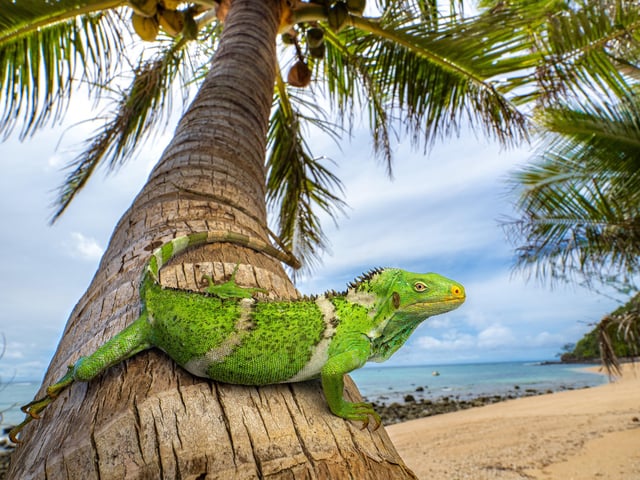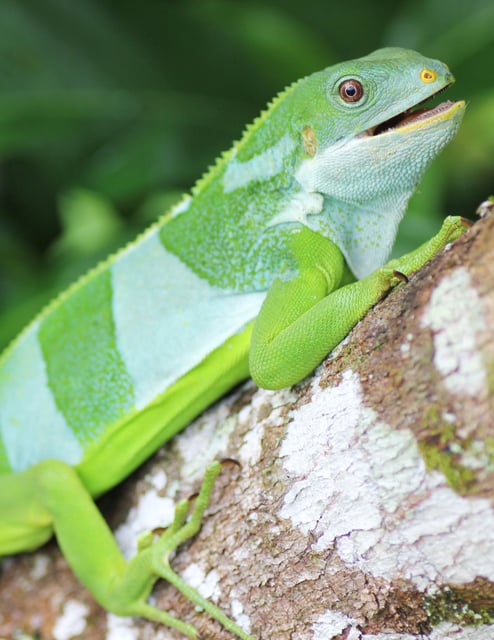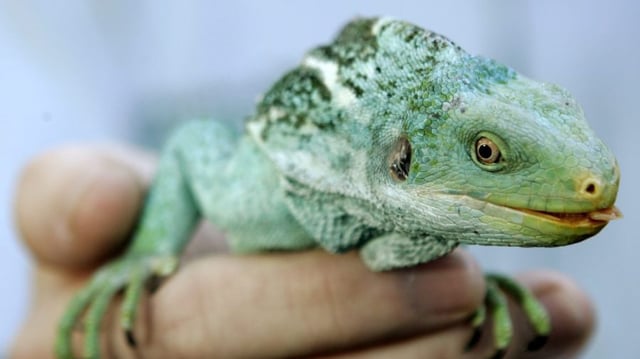Overview
- Fiji iguanas likely traveled 5,000 miles from North America to Fiji on vegetation rafts approximately 34 million years ago.
- This journey is the longest known transoceanic dispersal of any terrestrial vertebrate, confirmed through genome-wide DNA analysis.
- Genetic evidence links Fiji iguanas to North American desert iguanas, ruling out previous theories of South American or Pacific origins.
- The iguanas' arrival coincided with the volcanic formation of Fiji's islands, enabling their colonization and adaptation to the new environment.
- All four species of Fiji iguanas are endangered today due to habitat loss, invasive species, and illegal trade, highlighting urgent conservation needs.


